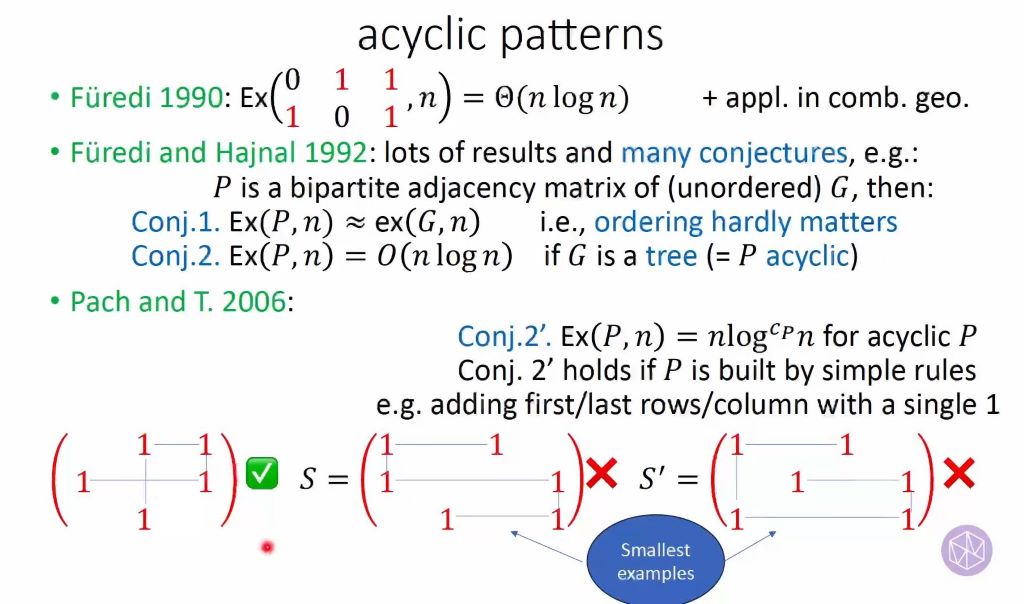Introductory Workshop - Graph Theory: Extremal, Probabilistic and Structural: Forbidden acyclic patterns in 0-1 matrices
Presenter
February 10, 2025
Keywords:
- extremal graph theory
- random graphs
- probabilistic methods
- structural graph theory
- Ramsey theory
MSC:
- 05C35 - Extremal problems in graph theory [See also 90C35]
- 05C55 - Generalized Ramsey theory [See also 05D10]
- 05C75 - Structural characterization of families of graphs
- 05C80 - Random graphs (graph-theoretic aspects) [See also 60B20]
- 05D40 - Probabilistic methods in extremal combinatorics
- including polynomial methods (combinatorial Nullstellensatz
- etc.)
Abstract
A zero-one matrix M is said to contain another zero-one matrix A if we can delete some rows and columns of M and replace some 1-entries with 0-entries such that the resulting matrix is A. The extremal function of A, denoted ex(n, A), is the maximum number of 1-entries that an n×n zero-one matrix can have without containing A. The systematic study of this function for various patterns A goes back to the work of Füredi and Hajnal from 1992. The field has many connections to other areas such as classical Turán type extremal graph theory and Davenport-Schinzel theory and has many applications in mathematics and theoretical computer science.
The problem has been particularly extensively studied for so-called acyclic matrices and this talk is a survey of these results. After several refuted conjectures the one still standing (and wide open) states that the extremal function of any acyclic pattern is $n^{1+o(1)}$.
